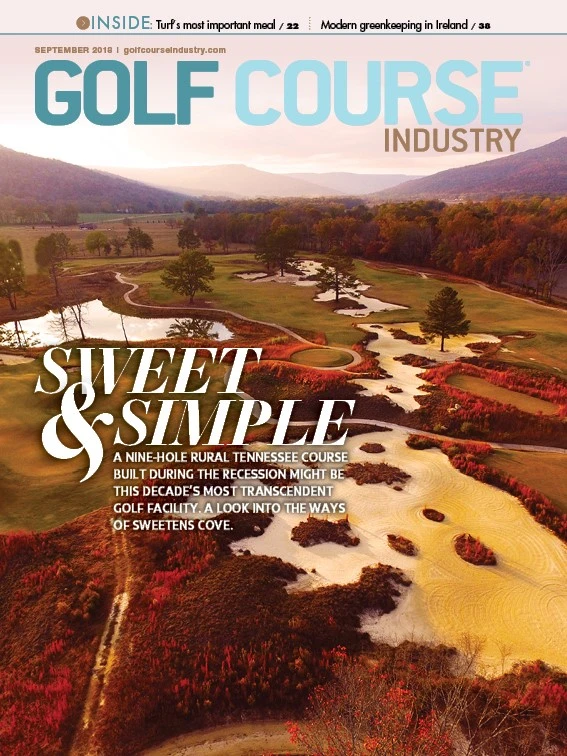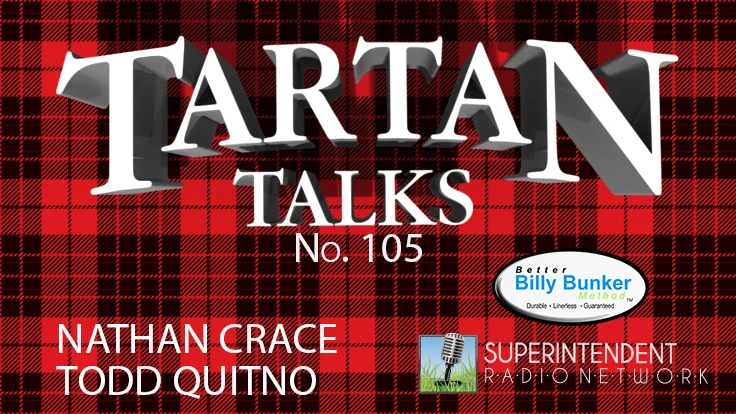

What have been some particularly tricky weed pests turf managers have been forced to deal with on both sides of the transition zone? And how best to either contain or keep them at bay?
Poa annua. Poa continues to be a problematic weed for golf course superintendents on both sides of the transition zone. Keeping Poa, or any other problematic weed, in check starts with sound agronomics. Healthy, vigorous turf is essential in the battle against unwanted weeds. Chemistry rotation is also extremely important. Rotating different types of chemistry from both a pre- and post-emergent standpoint delays resistant biotypes from becoming the prominent weed.
We’ve experienced some unusual seasonal transitions over the last few years, everything from longer summers, short falls and non-existent springs. How has this challenged golf course superintendents in their approaches to put together a program that addresses weed pressure?
Changing weather patterns do create a challenge when trying to develop a sound weed management program. It is impossible to predict what the weather will do one, two or three months out. It really becomes a challenge when deciding on what pre-emergent herbicide product to use. A superintendent who’s managing turf that may be susceptible to winterkill has to be diligent in their choice of chemistries to use in their pre-emergent applications. We’re also seeing weeds migrate into new geographies with the shifting weather patterns. Weeds that were typically considered “southern” weeds are emerging in different parts of the country now.
What is a common mistake you see superintendents make with their weed program and how can they overcome it?
Once they find something that works from a herbicide standpoint, they stick with it. I don’t really consider it a mistake. Rather, it falls in line with the “If it ain’t broke, don’t fix it,” philosophy. It’s human nature. Why change if something is delivering results? This mentality, however, leads to herbicide resistance. It is important to rotate chemistry in order to maximize the usefulness of the products that are currently on the market today.
Are you seeing any resistance issues with weeds? If so, what can superintendents do to avoid those issues?
Yes. Resistance is not as big of an issue in turf as it is in agriculture, but it is definitely becoming an issue. Rotation of chemistries and using products with multiple modes of action are simple yet effective ways to delay the onslaught of resistance. As we continue to see more resistant weed populations, the superintendent may have to look at their weed management program in a similar fashion as they do their disease management program where they are rotating different chemistries.How has the chemistry changed and/or improved in recent years to address weed issues in golf turf?
Reduced use rates with some of the new chemistries and AI’s that have been introduced into the turf market. We now see new products with an ounces/acre use rate. Historically, use rates were ounces/1,000 sq. ft. These lower use rates in conjunction with new formulation technologies reduce the input and impact on the environment.
Are there any new weed pressures that superintendents need to be aware of that could become a serious agronomic issue in the coming years?
It seems like each year a new weed is re-emerging as a problem. Many of these re-emerging, grassy type weeds can be attributed to products being pulled off of the shelf, such as MSMA (Monosodium methanearsonate (MSMA) is a commonly used herbicide in warm-season climates). Resistance will become more of an issue if we do not take steps now to maximize the tools we currently have to use.
Always read and follow label directions.

Explore the September 2018 Issue
Check out more from this issue and find your next story to read.
Latest from Golf Course Industry
- Schaffer’s Mill turns to Troon for management
- Talking Turf Weeds 13: Talking seasonal change with Heidi Burgess and Paul Marquardt
- Beyond the Page 65: New faces on the back page
- From the publisher’s pen: New? No way!
- Indiana course upgrades range with synthetic ‘bunkers’
- Monterey Peninsula CC Shore Course renovation almost finished
- KemperSports and Touchstone Golf announce partnership
- PBI-Gordon Company hires marketing manager Jared Hoyle





